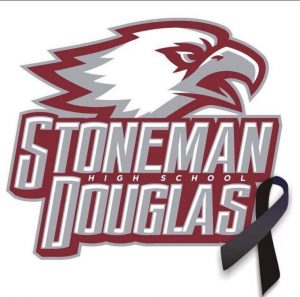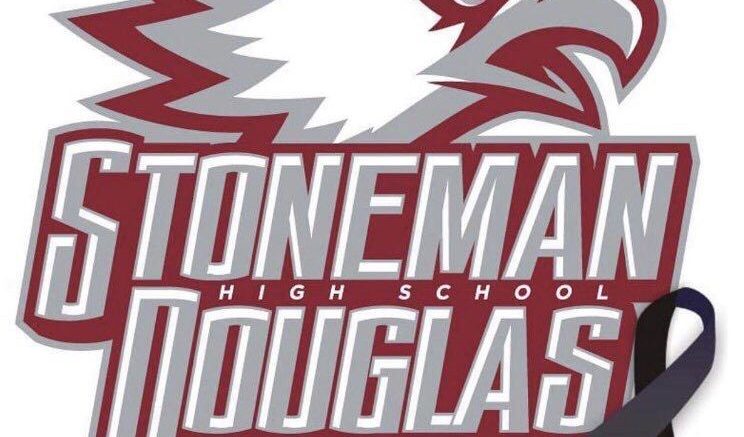
By Peter Dreier
The American Prospect (2/20/18)
There’s nothing on the Parkland, Florida, Marjory Stoneman Douglas High School website about the woman whose name adorns the school, so its students may not realize that in rising from last week’s tragedy to speak truth to power, they are following in Douglas’s activist footsteps.
Douglas would certainly see a bit of herself in Emma Gonzalez, the poised and eloquent young woman whose speech electrified her classmates, teachers, parents, and the whole country at a Fort Lauderdale rally on Saturday, only days after a gunman entered her school and killed 17 people.
“If the president wants to come up to me and tell me to my face that it was a terrible tragedy and how it should never have happened and maintain telling us how nothing is going to be done about it,” said the 18-year-old senior, “I’m going to happily ask him how much money he received from the National Rifle Association.”
Douglas, who challenged the political and business establishment of her day would be proud of the students’ courageous efforts to galvanize a movement for gun control, which now includes a nationwide walkout by students and teachers scheduled for April 20.
Douglas, who challenged the political and business establishment of her day would be proud of the students’ courageous efforts to galvanize a movement for gun control.
Douglas was a journalist, writer, feminist, environmentalist, and progressive activist, best known for her staunch defense of the Everglades against efforts to drain it and reclaim land for development.
Born in Minneapolis in 1890, Douglas attended Wellesley College, where she earned straight A’s and was elected “Class Orator,” graduating in 1912. It was at Wellesley that she first got involved in the women’s suffrage movement.
Champion of womens rights, environment & human rights
In 1915 she moved to Miami to work for The Miami Herald, which was owned by her father. The next year she joined the American Red Cross in Europe in the midst of World War I. She spent much of her time writing articles for the Associated Press from France, Italy and the Balkans. When the war ended, she remained in Paris to care for displaced war refugees. That experience, she later wrote in her autobiography, “helped me understand the plight of refugees in Miami 60 years later.”
Returning to Miami in 1917, Douglas continued working at the Herald, and jumped into the struggle for women’s rights. That year she traveled to Tallahassee with three other women to campaign for the women’s suffrage amendment before Florida state legislators.
“We had to speak to a committee of the House, which we did,” she recalled in a 1983 interview. “It was a big room with men sitting around two walls of it with spittoons between every two or three. And we had on our best clothes and we spoke, as we felt, eloquently, about women’s suffrage and it was like speaking to blank walls. All they did was spit in the spittoons. They didn’t pay any attention to us at all.”
(Although the 19th Amendment to the U.S. Constitution, giving women the vote, was adopted in 1920, Florida did not officially ratify it until 1969.)
Post-World War I Miami was still a small Southern city, governed by Jim Crow laws, with fewer than 20,000 residents. Many Miami police officers were members of the Ku Klux Klan, which was gaining momentum. One night Douglas was driving back from the beach with her father when they came upon the KKK preparing to march in the masks and sheets.
“A masked man on horseback rode up in front of my father and said, ‘this street is closed,’ and my father said ‘Get out of my way!’ and drove right straight ahead, through them and scattering them and everything; they couldn’t stop him,” she recalled years later. “We were all yelling and screaming in defiance, we were so mad.”
Despite his liberal sympathies, Douglas’s father initially relegated her to writing for the paper’s “society” page, covering weddings, tea parties, and other so-called “women’s issues.” She rebelled, insisting on covering more hard-hitting topics, and was soon writing editorials, columns, and articles that expressed her concern for civil rights, better sanitation, women’s suffrage, and responsible urban planning. …
- NPR: Who Was Marjory Stoneman Douglas? — Marjory Stoneman Douglas, the woman for whom the high school where Wednesday’s deadly shooting took place was an author and an activist. She was responsible for helping preserve Florida’s everglades. … Link to Story, Transcript and 2-Minute Audio

